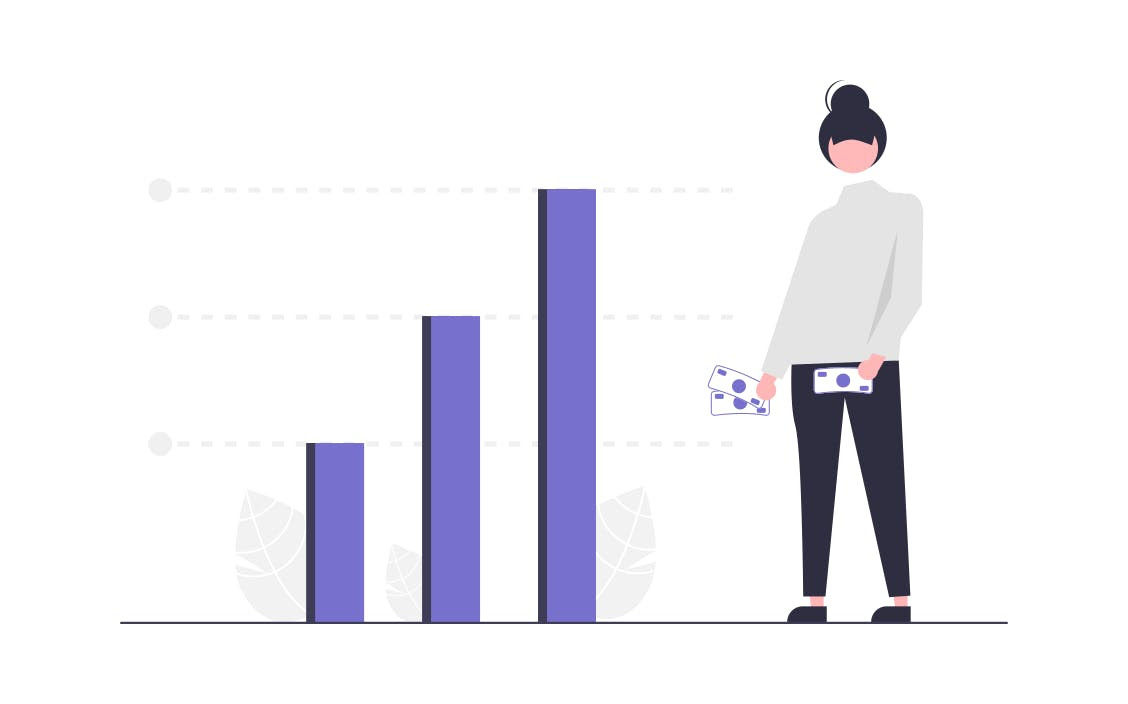7 FAQs About Crypto
💸 "Is it legal?", "What about volatility?" and other questions to answer before buying your first cryptocurrency. This is Part 3 of the "Fundamentals in 5 Parts" series
This week, I'm going to address some popular questions and concerns.
So far, we've talked about how cryptocurrencies differ from our traditional financial system. We've also discussed Bitcoin, blockchains, and mining.
The rabbit hole of how exactly cryptocurrencies work runs very deep, and I'll suggest resources to dive in later. All you need to remember is the problem that they solve: building a secure financial system without middlemen.
Well, if cryptocurrencies are deemed to be so revolutionary, why aren't they more ubiquitous? And what are the limitations of buying or storing them? Let's do a quick Q&A about these topics and more.
🎁 What can I do with cryptocurrencies?
Most people buy crypto to profit from it. They buy it as an investment, hoping that its value appreciates.
However, stout believers think of cryptocurrencies as the currency of the Internet. This is a fancy way of saying that it's a digitally native way to spend and store money. You don't need physical banks, ATMs, or printing and minting presses. That lets you spend crypto on digital-only assets like NFTs, domain names, etc.
You can use crypto for all sorts of money transfers and transactions. You can also spend it with various merchants, as we'll see in Part 5 of this series.
🤔 How do I know which cryptocurrency to buy?
Depends on your intentions. For investing, there is no right answer. Cryptocurrency prices are speculative and unpredictable. For spending, Bitcoin is a good choice: that's the currency online merchants are most likely to accept. For using apps built on blockchains, Ether is a good option.
Choosing the right cryptocurrency is difficult because there are so many. Once you're clear on your 'use case', do some research to see what currency fits it best.
📊 Why are crypto prices so volatile?
ICYMI, crypto prices fluctuate a lot. Bitcoin, for example, was priced in the hundreds of dollars in 2014 and tens of thousands in 2021:1
Prices of any asset fluctuate based on market demand and supply. This is true even for the crypto trading market. However, crypto prices are more volatile because the market is "young" and less liquid (that is, there's lesser trading activity). Over time, the prices for older cryptocurrencies like Bitcoin should stabilize more.
If you want to avoid volatility altogether, consider buying stablecoins. These are cryptocurrencies who peg their values to other stable assets like gold.
⚡️ What about all the electricity consumption?
A quick refresher: Bitcoin uses Proof of Work, a mechanism where computers do math puzzles to maintain the blockchain. Proof of Work enforces trust, but the computers need to expend a large amount of electricity to solve puzzles.
There are fixes, though. Several currencies are (or will be) using alternatives that are more environtally sustainable. For example, Ethereum will soon switch to Proof of Stake, a much more efficient alternative.
⚖️ Is it legal?
In most places, yes. Buying and selling crypto is legal in many countries housing crypto exchanges.
Governments regulate crypto exchanges to protect consumers like us from financial crimes. They also want to make sure people don't use crypto for tax evasion. That's why many countries classify "capital gains" or profits from crypto as taxable.
If you’re in the US, for example, all your trades would need to be filed to the IRS on a form like this:2

🤥 How can I be assured that it's not a scam?
What puts off people from buying crypto is the risk of losing money over something they don't understand. There's two workarounds here: start small and go with platforms you trust. Pick a crypto exchange that someone you personally know can vouch for. Also, don't buy currencies you hadn't heard of until that moment.
A big reason why people trust cryptocurrencies is because transactions are publicly visible. They're recorded on the blockchain, which means you can verify them anytime with a blockchain explorer.3
🚓 What about cryptocurrency-linked crime?
People have certainly used crypto for illicit activities like money laundering. But, the percentage of transactions going for these uses is < 1% and decreasing. Coinbase, a leading crypto exchanges, has a great read on this topic, with links to official stats.
Remember, governments regulate crypto for consumer protection. That includes regulation of crypto exchanges, which most people use for transactions. Simple measures like identity checks actually go a long way in curtailing crypto-linked crime.
🛒 How do I actually buy cryptocurrencies?
Glad you wondered 🙂. Stay tuned until next Sunday.
Image Credits: https://cryptotrader.tax/blog/the-traders-guide-to-cryptocurrency-taxes. Original IRS Form available here
As an example, let’s take a random transaction of 0.0097048 Bitcoin that was added to the Bitcoin blockchain on January 3rd, 2022. You can check the details of this same transaction on blockchain.com, blockchair.com, blockcypher.com, or any of the other blockchain explorers.






